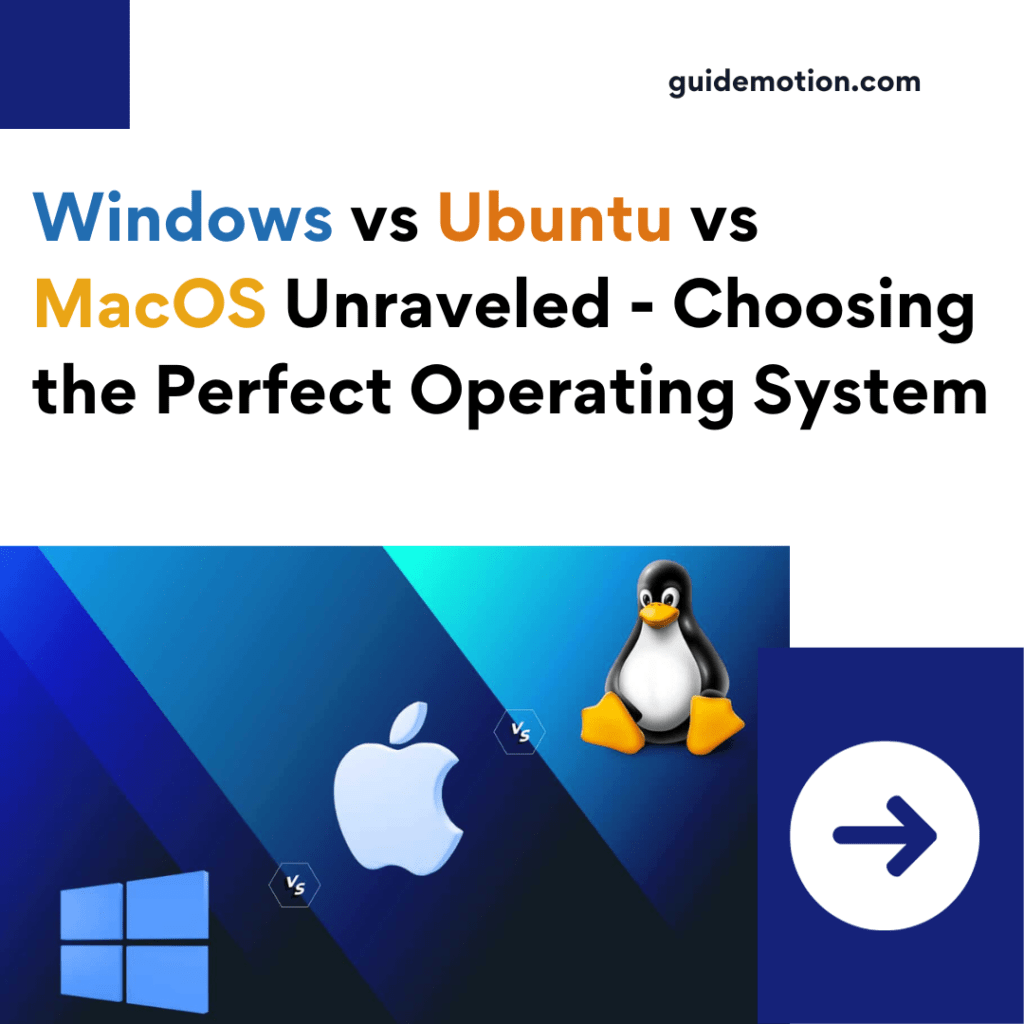Operating systems serve as the backbone of our digital interactions, shaping our computing experiences. Windows, Ubuntu, and MacOS stand as stalwarts in the realm of operating systems, each offering unique features and functionalities. In this comprehensive guide, we’ll explore the key differences between these OS giants, aiding you in making an informed choice tailored to your preferences and requirements.
Windows vs Ubuntu vs MacOS Differences
Windows
- Intuitive, user-friendly interface
- Extensive library of applications and games
- Resource-intensive, suited for modern hardware
- Built-in security tools, antivirus software
- Limited customization options
- Regular updates, extensive online support
- Commercial, various price points
- Broad hardware compatibility
Ubuntu Linux
- Customizable desktop environments
- Open-source software, vast repository
- Lightweight, excellent performance on older hardware
- Strong user privileges, minimal exposure to viruses
- Highly customizable, various desktop environments
- Active open-source community, forums, tutorials
- Free and open-source, accessible to all users
- Limited proprietary software compatibility
MacOs
- Sleek, consistent, macOS-specific design
- Rich app ecosystem, Apple Store
- Optimized for Apple hardware, smooth experience
- Robust security features, sandboxing
- Limited customization, focused on consistency
- Regular updates, Apple support ecosystem
- Premium price, bundled with Apple hardware
- Exclusive to Apple devices
As you consider your next operating system, keep in mind your priorities: user interface, software compatibility, performance, security, customizability, support, budget, and hardware compatibility. Windows offers a user-friendly experience and extensive software library, while Ubuntu Linux provides open-source flexibility and excellent performance, especially on older devices. MacOS, with its sleek design and optimized performance for Apple hardware, is an excellent choice for Apple enthusiasts.
Ultimately, the choice between Windows, Ubuntu Linux, and MacOS depends on your specific needs and preferences. Whether you prioritize familiarity, customization, or a seamless experience on Apple devices, understanding these differences will guide you toward making the right decision for your computing journey.


